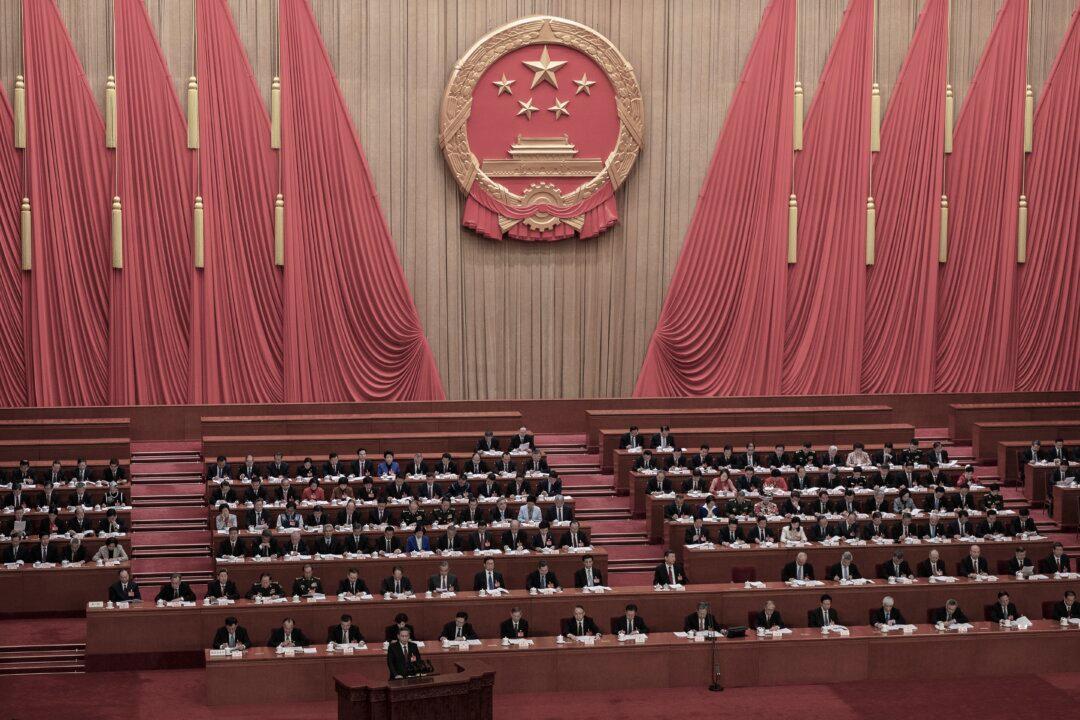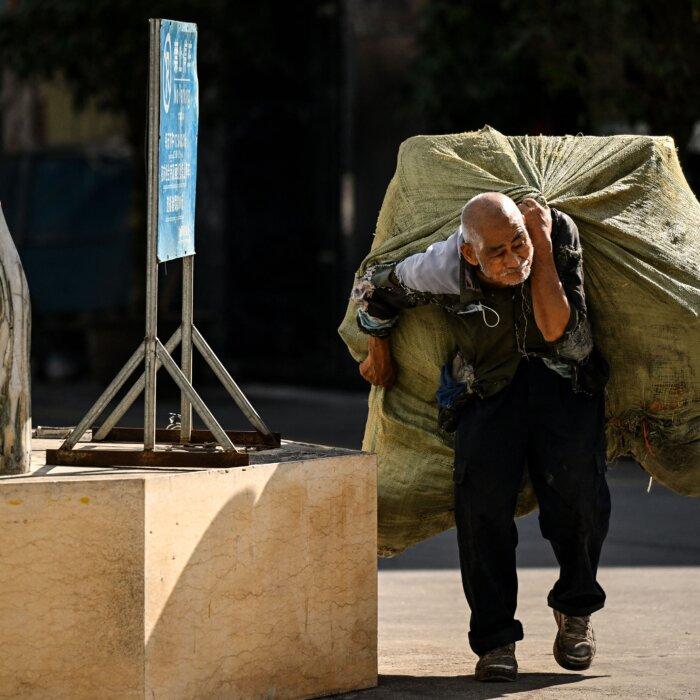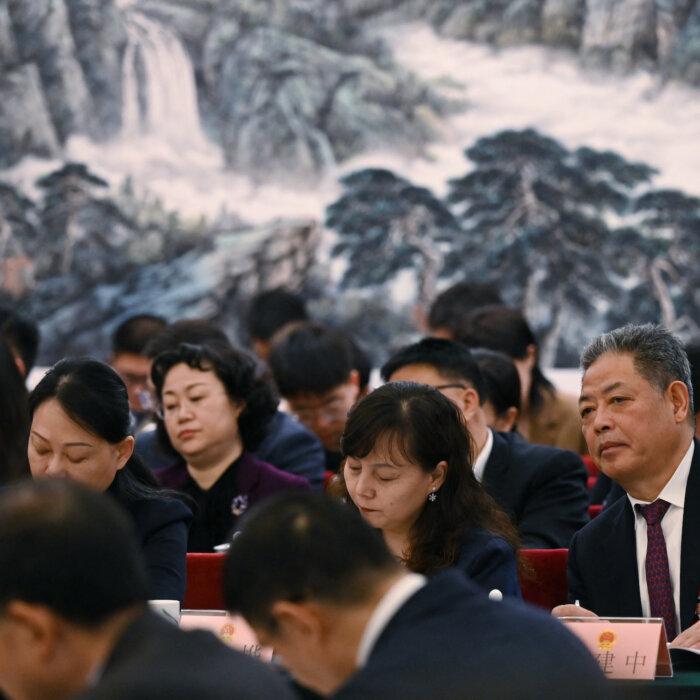As the week-long key annual meetings—the “Two Sessions”—of the ruling Chinese Communist Party (CCP) concluded on March 11, outside observers pointed to Beijing’s questionable economic data and CCP leader Xi Jinping’s centralization of power as key takeaways.
China observers note that Xi implemented more authoritarian measures as the country’s economy declined. Consequently, they warn that the CCP is becoming increasingly insecure and could collapse at any moment.
The CCP’s “Two Sessions” refers to the annual plenary sessions of the Chinese People’s Political Consultative Conference (CPPCC) and the National People’s Congress (NPC), the two houses of China’s rubber-stamp legislature.
During the meetings, Minister of Finance Lan Foan admitted that “tightening the belt” of all levels of government is a long-term solution amid China’s slumping economy and unprecedented local government debts.
Premier Li Qiang also emphasized in his work report during the meetings that “governments at all levels must get used to austerity,” highlighting the difficult financial situation of local governments.
GDP, Military Budget
According to the premier’s work report, the 2024 GDP growth target is set at 5 percent, approximately the same as last year’s officially released 5.2 percent growth rate. The military budget will increase by 7.2 percent in 2024.The international community has questioned the CCP’s official GDP growth rate in recent years as the Chinese economy continues to decline.
According to statistics from the American think tank Rhodium Group, China’s actual GDP growth in 2023 should be only about 1.5 percent.
Song Guocheng, a senior researcher at the International Relations Research Center of Taiwan National Chengchi University, said the “GDP and military budget announced at the ‘Two Sessions’ are not credible.”
“Generally, in countries with a free market economy, GDP is ‘naturally generated.’ At the end of a year, GDP is whatever it is. But in China, GDP is decided by the authorities, such as the 5 percent, which should be called ‘ordered index,’” he wrote in an article for UpMedia on March 10.
“Therefore, it doesn’t matter whether the lower-level officials can achieve 5 percent; they must come up with the number! Otherwise, it’s called ‘disobedience to the CCP’s central authorities!’” he added.
Moreover, Mr. Song wrote that the CCP often “distributes and hides” its military budget in other departments, “such as hiding the military education and training budget in the Ministry of Education, so the actual military expenditure is definitely higher than the announced 7.2 percent.”
He noted, “This is the 30th consecutive year that the CCP has increased military expenditures year by year; that is, it continues to expand and strengthen its military and prepare for war.”
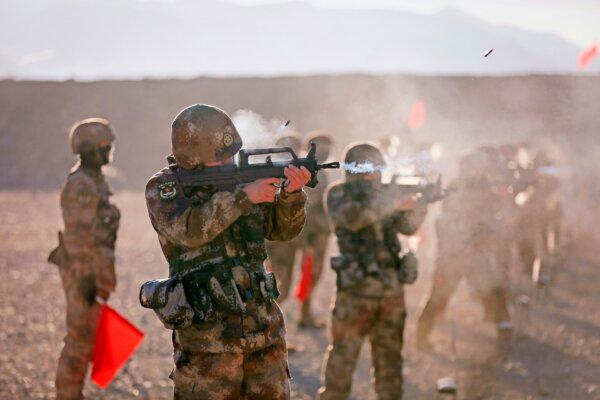
Xi’s Centralization of Authority
According to The Economist, the message conveyed during the “Two Sessions” is that although China’s economy is slowing down, power is consolidating further into Xi’s hands, and he is increasingly focused on competing with the United States.However, the article only represents the West’s views of China’s current political and economic situation, according to China observer Wang He.
“While China’s economy is not doing well, the entire political situation in the country is deteriorating. Authority is centralized by Xi Jinping, which is exactly the key factor causing China’s economic deterioration,” he told The Epoch Times on March 11.
Mr. Wang remarked that Xi’s consolidation of power is leaning toward leftist policies, with the core being “the advancement of the country and the retreat of the private sector.”
Since last year, Chinese private entrepreneurs have been making political demands to CCP authorities, such as amending the constitution and revising Beijing’s political economic theory. Their objective is to foster an environment where the private and public sectors compete on equal footing rather than aiming to eradicate private enterprises.
“But it is impossible for Xi Jinping to accept this request, so the private enterprises are leaving the country. Therefore, the root cause of China’s economic mess is politics, and the core lies with Xi Jinping,” Mr. Wang said.
“Xi Jinping is unwilling to exit the stage of history. Instead, he wants to consolidate his power. The worse the economy is, the more everyone is against him, the more he wants to seize power, and the more severely he wants to suppress the people. This creates a vicious cycle,” he continued.
“The final result will be an explosive situation: Xi Jinping will be taken down, and the Communist Party will disintegrate,” he warned.
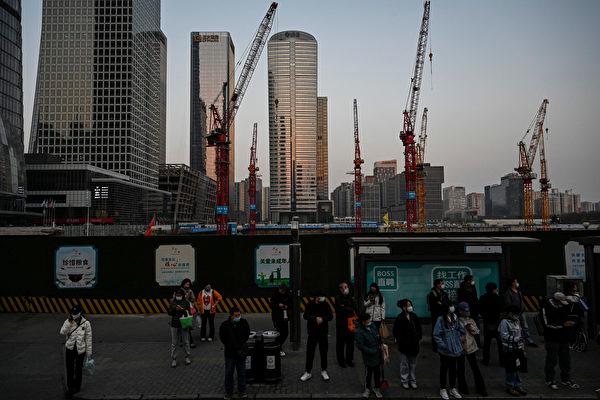
Chinese economist Li Hengqing told The Epoch Times on March 11 that Xi has become a figure whose decisions are unquestionably followed, and the CCP’s economic policies are shaped by his whims.
“When Xi encounters a failure [of his policy], he blames the people around him. He puts all the power in his own hands. With the so-called anti-corruption [campaign], he can arrest anyone he wants or suspects.”
Mr. Li pointed out that the CCP’s finances have been depleted. In such dire circumstances, the populace may be driven to rebel against the authorities, he said, adding that there is speculation that CCP members may call for Xi’s resignation.
“Xi Jinping has realized this. When he talks about political security, he means protecting the leadership of the Communist Party and his personal leadership. It means that he is becoming increasingly insecure,” he said.
